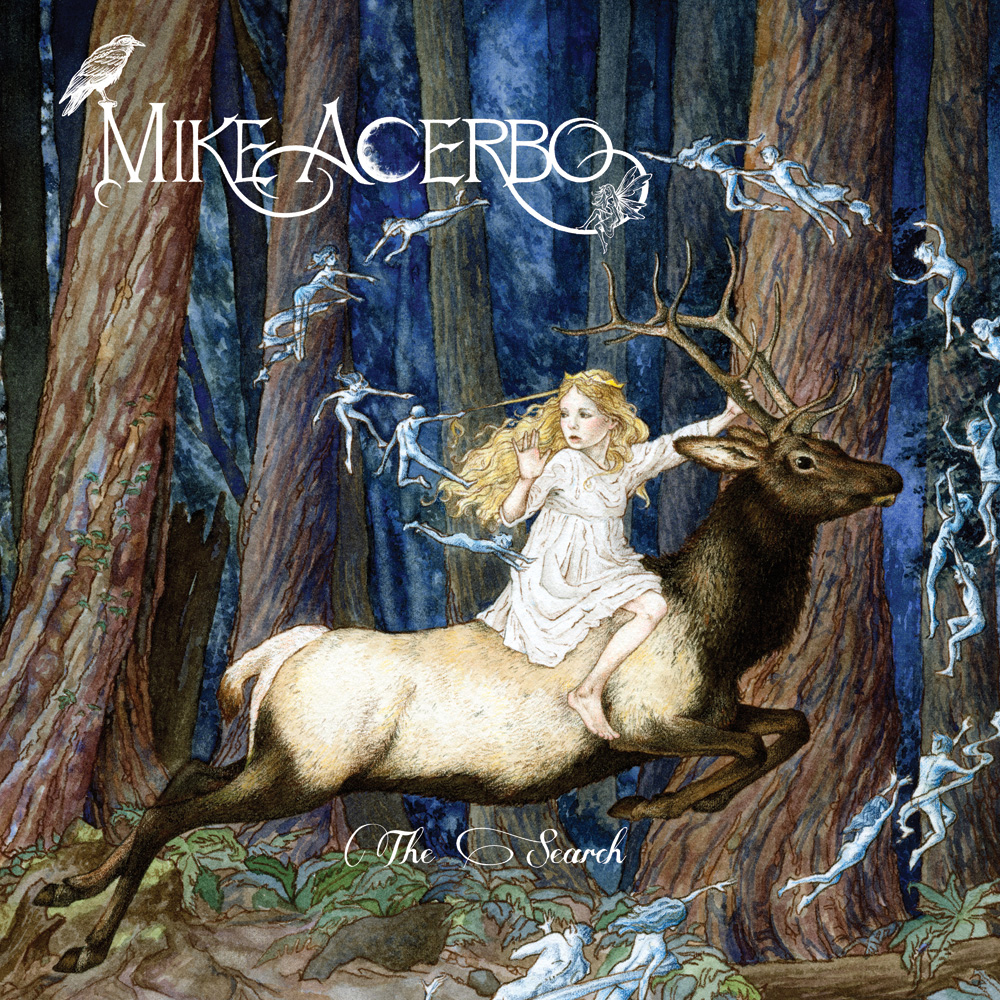Mike Acerbo wants to live in a fairy tale.
As he sings of golden castles, blueberry moons and colorful lights in a lofty croon, the New York City singer and songwriter creates a mystical atmosphere that one would expect to be playing while a storybook heroine stumbles through fog toward her Prince Charming.
After working for more than 10 years, Acerbo completed his first album, “The Search.” His alternative folk album creates an enchanted aura, jumping from whimsical tracks to heart-wrenching croons for lost family and friends.
The album opens up with “Trilby,” a song about a young girl’s growing cynicism during her unsuccessful search for love. Acerbo’s voice glides smoothly over violins that create a country-esque twang and is possibly the catchiest song on the album.
Listeners encounter Acerbo’s whimsical side on “Blueberry Moon,” as he sings, “Spinning around like a bird in the sky / Come take my hand, we will capture our childhood / There’s a blueberry moon tonight.” Acerbo sounds rather pitchy at the end of the track, as he seems unaware of his own range. While his lyrics are amusing, listening to them is somewhat less so.
“Fairy Tale Love” exemplifies the magical tone that Acerbo was presumably hoping to create with “The Search.” The appearance of an electric guitar introduces a new dynamic to the album, and Acerbo’s claim that this love “is not real” is mirrored by the ethereal mood on this track.
Acerbo’s song “Mother” slows down the tempo with a tribute to his mother, who died tragically while he was in high school. According to his biography, Acerbo’s teenage years were darkened by the deaths of his mother, brother and a close friend.
“Won’t you keep the candle burning in the window / So that I might find my way again to the embrace that held me dear,” sings Acerbo in some of the most heartfelt lyrics on the album. The simplicity of the piano adds a nice counterpart to Acerbo’s soprano.
“Robbie” also offers a glimpse into Acerbo’s troubled past, as a song about a childhood friend who drowned. But while “Robbie” is packed with feeling, Acerbo’s voice is unimpressive, hitting the right note less than half of the time.
The folky twang found in “Trilby” resurfaces on “Where the River Meets the Sea,” with backup vocals from Leah Coloff adding a throatier counterpart to Acerbo’s smooth high notes. The song presents some nice harmonies and, while repetitive, captures the carefree feelings of a day by the river.
“No Moon” starts off with a fleeting strain of a flute, making Acerbo’s 1970s influences apparent with its layered vocals and poetic lyrics. The soprano key that the chorus calls for does Acerbo no favors, as his voice does not allow for the high notes the song requires.
After a few more mediocre songs, the album closes with “The Night Light.” Appropriately, the song sounds like a lullaby and serves as a nice close to “The Search.”
“The Search” starts out strong with “Trilby” and has a few shining moments on “Mother” and “The Night Light.” While Acerbo’s songs are beautifully packed with emotion, there is nothing distinguishing about the album as a whole.
It seems as though Acerbo himself is unsure of his own genre. The album tries to do too much ““ no track stands out as a frontrunner, and while Acerbo uses a variety of instruments, there is a sad lack of depth in his song-writing. While a few songs off “The Search” could be good for a television show soundtrack, it is hardly noteworthy as a stand-alone effort.
““ Email Christianson at lchristianson@media.ucla.edu.
